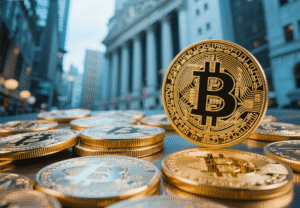Savvy traders never pay full fees. Use these referral codes to save for life: Binance WZ9KD49N / OKX 26021839

<
Future Trends in Digital Real Estate Markets
The digital real estate market is rapidly evolving, driven by advancements in blockchain technology, virtual reality (VR), and decentralized finance (DeFi). These innovations are reshaping how we perceive, own, and interact with property assets online.
1. Blockchain and NFTs Revolutionizing Ownership
Blockchain technology has introduced Non-Fungible Tokens (NFTs) as a means to represent unique digital assets, including parcels of virtual land. Platforms like Decentraland and The Sandbox allow users to buy, sell, and trade virtual real estate using cryptocurrencies. As more brands and individuals invest in these metaverse properties, the value of digital land is expected to skyrocket. This trend not only democratizes access to real estate but also opens up new revenue streams through virtual events, advertising, and e-commerce within the metaverse.
2. Virtual Reality Enhancing Immersive Experiences
Virtual reality is set to play a pivotal role in shaping the future of digital real estate. With VR tools, buyers can now explore virtual properties as if they were physically present. This immersive experience enables potential buyers to visualize their dream homes or office spaces without leaving their homes. Additionally, architects and developers can use VR to create interactive models that clients can walk through, making the design process more collaborative and engaging.
3. Decentralized Finance (DeFi) Facilitating Transactions
Decentralized finance is streamlining transactions in the digital real estate sector by eliminating intermediaries such as banks and brokers. Smart contracts on blockchain platforms enable secure, transparent, and automated property transfers. This shift reduces transaction costs and accelerates deal closures, making it easier for both buyers and sellers to participate in the market. Furthermore, DeFi lending platforms provide liquidity solutions for those looking to finance their digital property purchases.
4. Institutional Investment Driving Growth
Institutional investors are increasingly entering the digital real estate market, signaling its growing legitimacy. Major companies and venture capitalists are recognizing the potential of virtual worlds as viable investment opportunities. Their involvement brings stability, credibility, and additional capital inflows into this nascent industry. As more institutions adopt blockchain-based real estate solutions, we can expect increased innovation and adoption rates across various sectors.
5. Cross-Platform Integration and Interoperability
As different metaverses continue to emerge, ensuring seamless integration between them becomes crucial. Interoperable systems will allow users to move freely between platforms while retaining ownership of their digital assets. For instance, imagine owning a piece of land in one metaverse and being able to seamlessly transfer it to another platform without losing any value. Such interoperability fosters competition among developers and encourages collaboration, ultimately benefiting consumers who enjoy greater flexibility and choice.
Conclusion
The future of digital real estate holds immense promise thanks to emerging technologies like blockchain, VR, and DeFi. By leveraging these tools, stakeholders can unlock unprecedented levels of efficiency, creativity, and profitability in the virtual property landscape. As more people embrace life in the metaverse, understanding these trends will become essential for anyone seeking to capitalize on the next wave of digital transformation.
FAQs on Dubai’s Tokenized Real Estate Project
Frequently Asked Questions About Dubai’s Tokenized Real Estate Project
Question 1: What is the Dubai Land Department’s tokenization initiative?
Answer 1: The Dubai Land Department’s tokenization initiative involves digitizing real estate assets through blockchain technology, allowing fractional ownership and easier transactions.
Question 2: Why is this project significant for the MENA region?
Answer 2: This project marks the first licensed tokenized real estate project in the Middle East and North Africa (MENA), signaling growing interest in blockchain-based asset management in a rapidly developing crypto hub.
Question 3: How does tokenization benefit real estate investors?
Answer 3: Tokenization enables fractional ownership, making it more accessible for smaller investors to participate in high-value real estate deals, while also increasing liquidity.
Question 4: What role does blockchain play in this project?
Answer 4: Blockchain technology ensures transparency, security, and immutability in the tokenization process, providing a reliable framework for real-world asset representation.
Question 5: Are there any other tokenization projects related to real estate in Dubai?
Answer 5: Yes, the project builds upon previous initiatives by the Dubai Land Department, including the tokenization of the real estate registry, further solidifying Dubai’s position as a leader in blockchain innovation.




